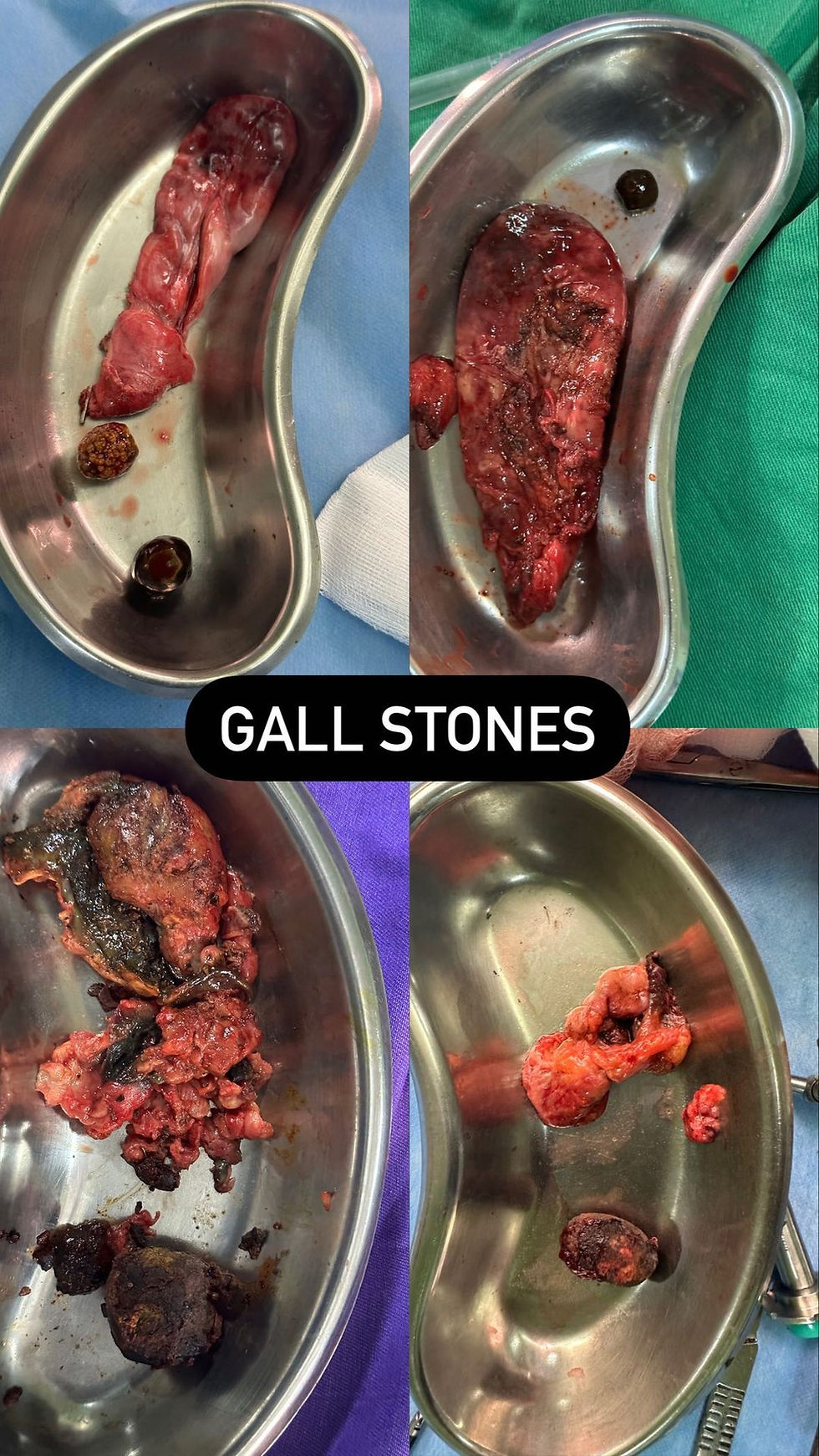The small big trouble - Appendicitis
- Abhilash Kumar
- May 18, 2024
- 3 min read

Acute appendicitis is a sudden inflammation of the appendix, a small, finger-shaped pouch attached to the large intestine. It is one of the most common causes of abdominal pain requiring surgical intervention and can occur at any age, though it is most frequently seen in individuals between the ages of 10 and 30.
#Causes The exact cause of acute appendicitis is often unclear, but it typically involves the obstruction of the appendix's lumen. The blockage can result from a variety of factors, including:
1. Fecaliths: Hardened stool can obstruct the appendix.
2. Enlarged Lymphoid Follicles: Often due to a viral or bacterial infection, these can block the appendiceal lumen.
3. Parasites: Intestinal parasites can also cause obstruction.
4. Foreign Bodies: Occasionally, ingested objects may lodge in the appendix.
5. Tumors: Rarely, appendiceal tumors can cause blockage.
When the appendix is blocked, bacteria inside can multiply rapidly, leading to infection and inflammation. If left untreated, the appendix can rupture, leading to peritonitis, a serious infection of the abdominal cavity.
Diagnosing acute appendicitis can be challenging due to its variable presentation. However, a combination of clinical evaluation, imaging, and laboratory tests are typically employed:
1. Clinical Evaluation: Symptoms often start with vague abdominal pain near the navel that shifts to the lower right quadrant. This pain is usually accompanied by nausea, vomiting, loss of appetite, and sometimes fever. Physical examination may reveal tenderness at McBurney's point, rebound tenderness, and guarding.
2. Laboratory Tests: Blood tests may show an elevated white blood cell count (leukocytosis), indicating infection. Urinalysis helps rule out urinary tract infections or kidney stones.
3. Imaging Studies:
- Ultrasound: Often used in children and pregnant women, it can reveal an enlarged appendix.
- Computed Tomography (CT) Scan: More commonly used in adults, CT scans provide detailed images and are highly accurate in diagnosing appendicitis.
- Magnetic Resonance Imaging (MRI): Sometimes used, particularly in pregnant women, to avoid radiation exposure from a CT scan.
#Treatment Options Treatment for acute appendicitis typically involves surgical removal of the appendix (appendectomy) or, in certain cases, antibiotic therapy.
1. Surgical Treatment:
- Laparoscopic Appendectomy: The preferred method for many surgeons, this minimally invasive procedure involves small incisions and the use of a camera. Benefits include reduced pain, shorter hospital stays, and faster recovery.
- Open Appendectomy: In some cases, such as when the appendix has ruptured or there is widespread infection, an open appendectomy may be performed. This involves a larger incision and may result in a longer recovery period.
2. Non-Surgical Treatment:
- Antibiotic Therapy: For selected patients, particularly those with early, uncomplicated appendicitis, antibiotic therapy alone may be effective. This approach is usually considered when surgery poses a higher risk, or in cases where appendicitis is not definitively diagnosed. However, there is a risk of recurrence.
3. Postoperative Care: - Following surgery, patients typically receive antibiotics to prevent infection. Pain management, wound care, and gradual return to normal activities are essential aspects of recovery. Most patients recover fully within a few weeks, although activity restrictions may be recommended for a short period.
#Conclusion Acute appendicitis is a common and potentially serious medical condition that requires prompt diagnosis and treatment. Surgical removal of the appendix remains the gold standard, though non-surgical options are being explored in specific cases. Early intervention is crucial to prevent complications such as rupture and peritonitis, ensuring a smooth recovery and favorable prognosis.




Comments